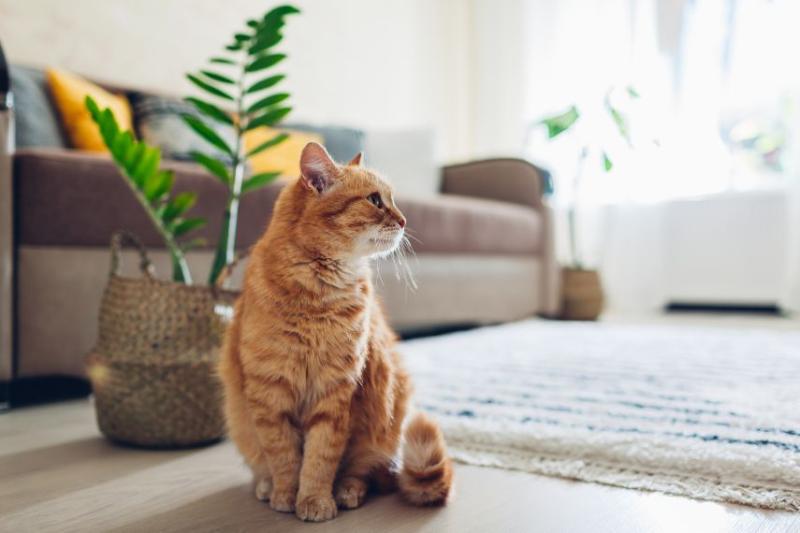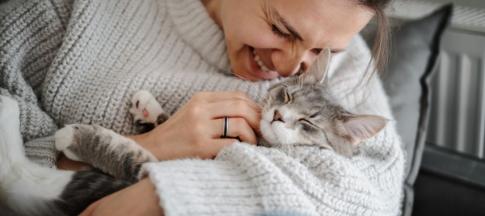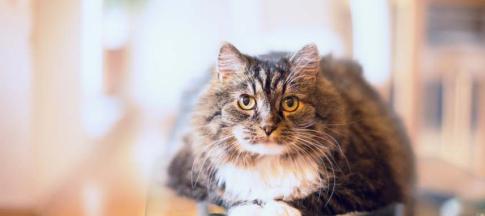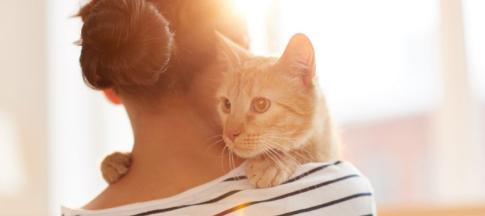
With more people living in urban areas, it’s more common for people to have indoor cats than it ever used to be.
We explain why some people keep their cats indoors, including everything you need to do to keep them happy, safe and mentally fulfilled.
Why would you keep your cat indoors?
There are a few reasons some people choose to keep their cats indoors. These include:
- Safety concerns, either around road safety or the possibility of cats being stolen or intentionally harmed.
- If the cat has significant health problems or a disability that could make it dangerous for them to be outside.
- If the cat is very old and their senses have started to get worse.
- The possibility of fights with other cats or animals.
- Illnesses or infections that they could get from being outside.
However, vets and animal welfare organisations generally believe that most cats should have access to the great outdoors.
What are some of the risks of keeping your cat indoors?
It’s harder to give your cats the right mental and physical stimulation they need to stay happy if they’re indoors all the time.
Hunting and climbing are natural behaviours for cats and it’s important that they have the space to do this, which is a bit harder inside a home.
Without the right mental and physical stimulation, indoor cats can become:
- anxious or stressed
- overweight
- destructive
It’s really important your house has everything your cat needs to feel fulfilled, safe and energised.
How can you tell if your cat is happy indoors?
There are a few signs that an indoor cat is happy and thriving, including:
- Displaying their natural instincts by spending part of the day ‘hunting’ toys, scratching a scratching post and interacting with their environment.
- Staring out of the window or watching TV. This shows that a cat is stimulated by what’s going on around them.
- Meowing, purring and seeking affection.
- A healthy appetite and willingness to use a litter tray.
How to keep your indoor cat happy
If you do decide to keep your cat indoors, there are a few things you can do to make sure you’re catering to their natural instincts and keeping them happy.
Keep their litter tray in a quiet place
Make sure their litter tray is in a quiet, private spot and that you clean it regularly.
Cats like privacy to go to the toilet and can get stressed otherwise.
They won’t want their litter tray too close to their food bowls. They also don’t like their food and water in the same place, so keep their bowls apart.
Get creative with how you feed them
Make your cat work for their food by putting it in a treat ball or puzzle feeder.
This will give them a good mental workout and help keep boredom at bay.
Make sure they have the right spaces
Make sure your cat has access to enough indoor space across different rooms and has plenty of places to hide away if they want to.
They also need at least two types of resting places – a floor level den that’s closed on three sides, and a place higher up with a good view.
Plus, make sure you keep anything hazardous out of their way, including any toxic house plants.
Make sure they have lots to play with
Make sure your cat stays active by giving them plenty of opportunities to play. Cardboard boxes, used toilet roll tubes and balls of screwed up paper are often just as exciting as shop-bought cat toys.
Fishing rod type toys are a great way of encouraging natural stalking and pouncing behaviours.
A cat’s hunting sequence is not just about catching their dinner – the act of stalking prey actually releases happy hormones in their brains.
Invest in scratching posts
Install scratching posts in several locations around the house so your cat can burn off energy while sharpening their claws. This will also save your furniture and curtains!
Read our guide on how to stop cats scratching your furniture.
A bored cat can become a destructive cat, which can be a problem for house-proud owners.
Interact with your cat lots
It's important you make the time to interact with your cat. This is even more important with indoor cats who won’t be interacting with other animals and people outside of the home.
Plus, don’t leave them home alone for long periods during the day. They could become lonely and bored stuck in on their own without any human contact.
Consider a safe outside space
If you have a garden, you could install fencing that’s positioned inwards to make it impossible for your cat to climb, or build a closed in wooden and wire structure to give them some secure garden time.


